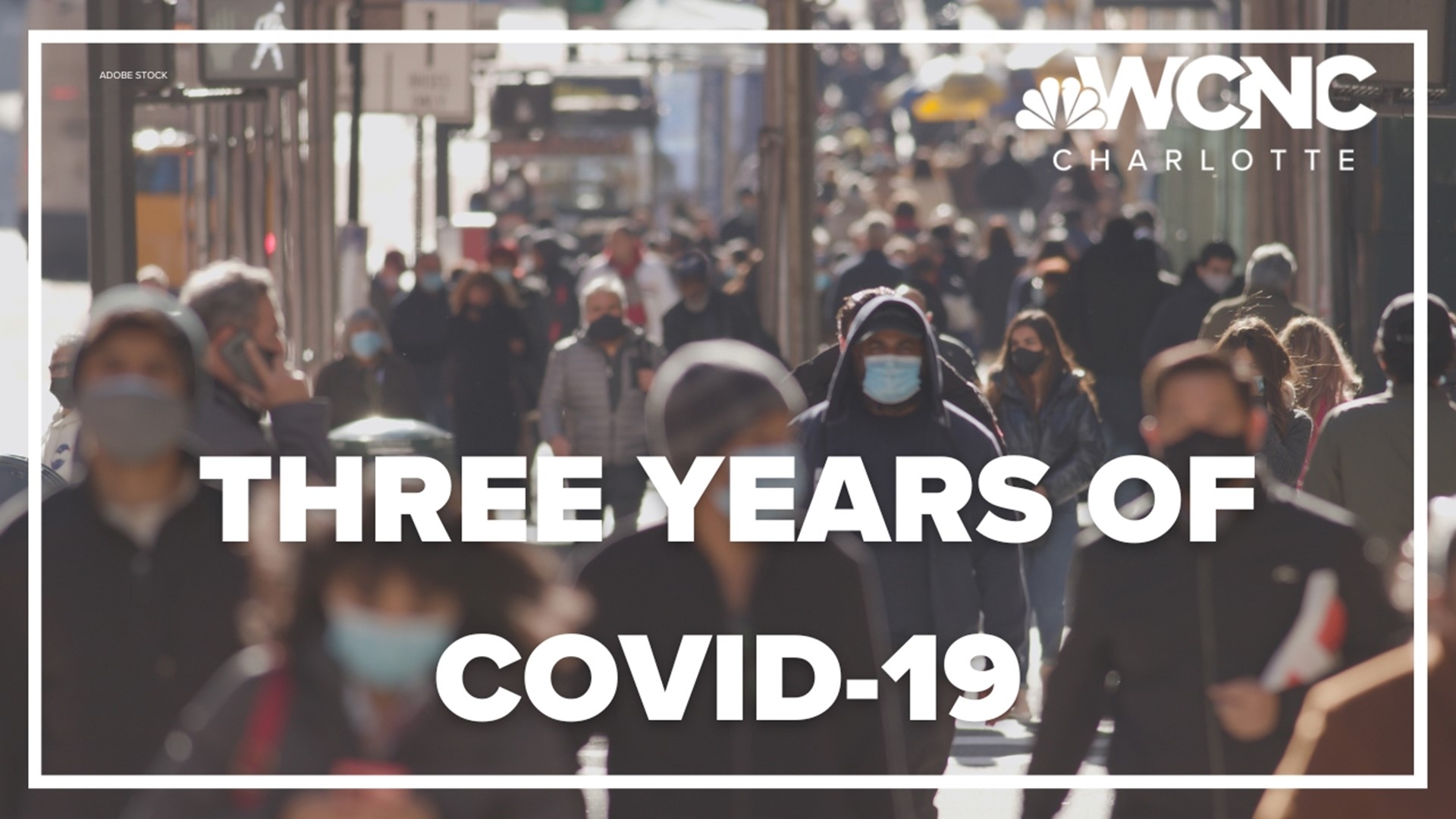CHARLOTTE, N.C. — Friday marks three years since the first case of COVID-19 was reported in North Carolina. Since then, there have been many ups and downs, the initial lockdowns, adjusting to remote life, waiting for vaccines and the continued emergence of new variants.
Now, doctors are looking back at the lessons learned so far.
Three years ago, most people would have never guessed COVID-19 would still be a topic of conversation. The state and Mecklenburg County are now in a very different place; the latest data released shows metrics are continuing to trend down.
A single confirmed case of COVID-19 sent shock waves across the state.
Parents and teachers like Brooke Keaton were worried about their kids coping with a new virus.
“My nerves really started tingling,” Keaton said about hearing the first case had been detected in North Carolina in 2020.
Doctors were facing it on the front lines.
“There was so much fear, and so many unknowns both in health care workers and in society,” Dr. Katie Passaretti, vice president and enterprise chief epidemiologist for Atrium Health said.
Since that first case, there have been more than 3.4 million confirmed in North Carolina. Three years and a handful of surges later, most people have been able to come up for air.
“My fingers are crossed and my knowledge base suggests we are close or at the endemic stage but I know well enough now not to say anything is definite,” Passaretti said.
But for COVID-19 long haulers like Brooke Keaton, this is just the start of the journey.
“COVID is literally our life,” she said.
Keaton takes several medications to treat a heart condition, arthritis and fatigue all developed after her December 2020 COVID-19 diagnosis.
“This definitely is still mind-boggling and just as confusing as it was in the beginning,” she said. “I guess the difference now is it's acknowledged and known about but as far as treatment is concerned there really hasn’t been at this point anything solid.”
Passaretti said long COVID will continue to have a big impact on health care, as doctors are still in the early days of figuring out how to best treat those patients.
Contact Chloe Leshner at cleshner@wcnc.com and follow her on Facebook, Twitter and Instagram.

